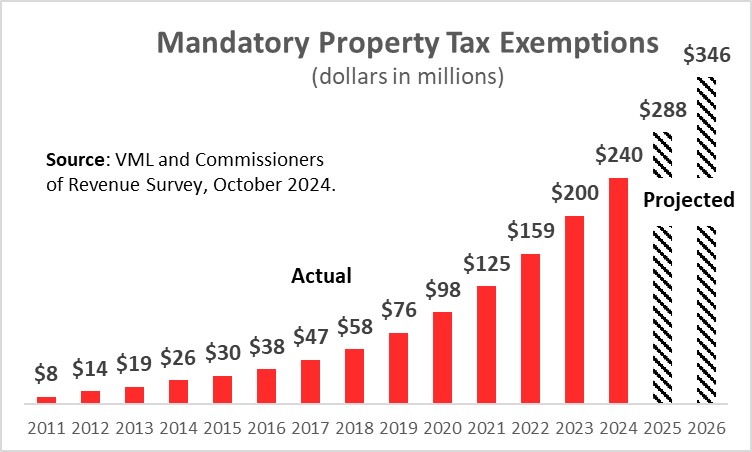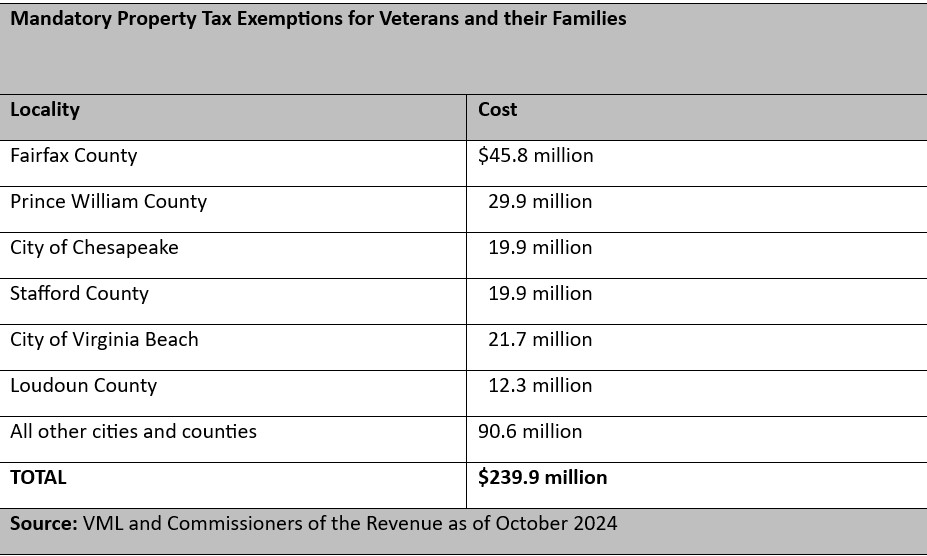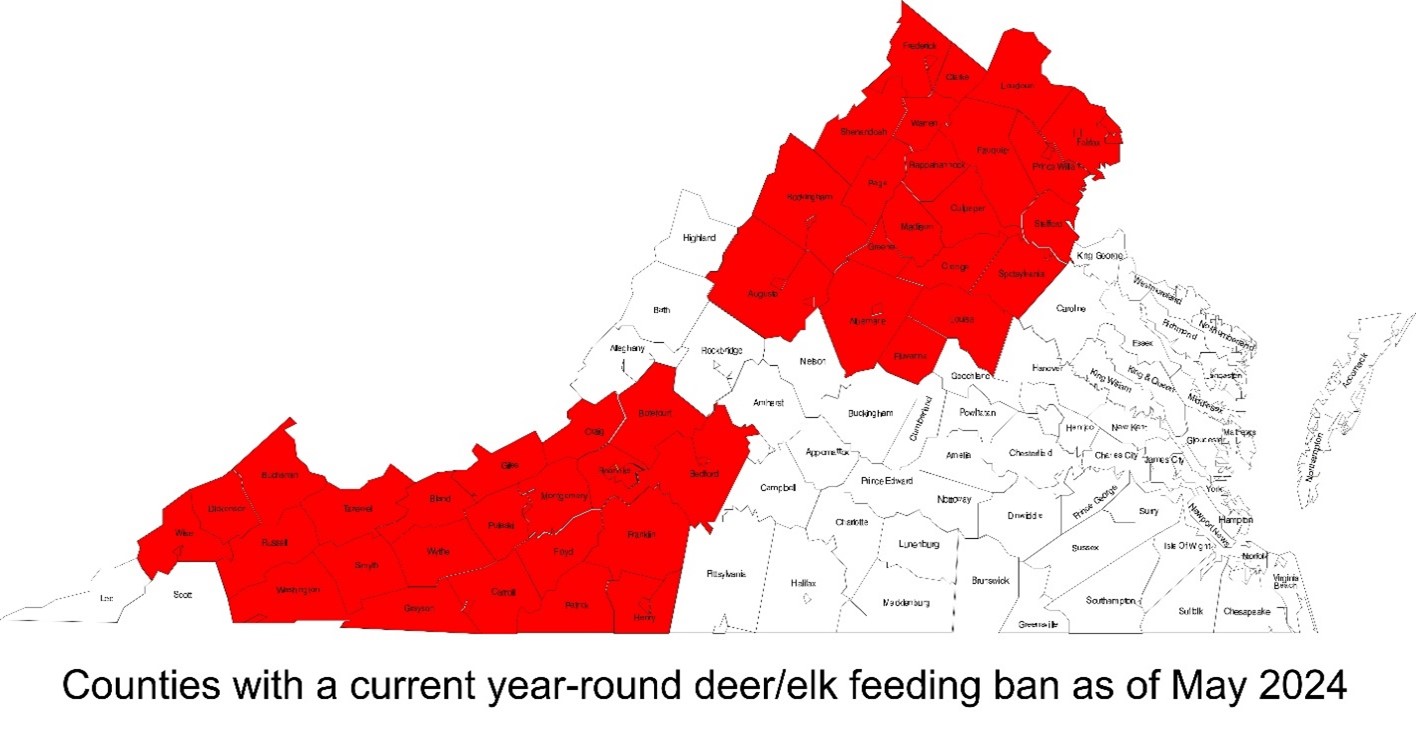eNews – October 25, 2024
Conference presentations available, work group on mandatory property tax exemptions, mobile MAT comments...and more!
Friday, October 25, 2024/Categories: eNews

This edition of eNews is sponsored by Moseley Architects one of the most trusted architectural and engineering firms serving the public sector in the Mid-Atlantic, known for exceptional experience and service to municipal governments. Learn more >
In this issue:
VML News
Finance
Education
Health & Human Services
Opportunities & Resources
VML News
Presentations from 2024 Annual Conference are now available
Thanks to everyone who came to VML’s 2024 Annual Conference in Virginia Beach earlier this month. The weather was great, the venue was beautiful, and it was fantastic to see so many VML member localities represented!
The presentations that were made available after the event concluded have been posted to VML’s website here >.
We will continue to post presentations as they become available. If you are looking for a particular presentation that is not currently listed, please send a request to Rob Bullington at the below email and we will do our best to make it available.
VML Contact: Rob Bullington, rbullington@vml.org
Virginia management professionals receive service awards
Several Virginia local government management professionals received service awards during the recent International City County Management Association (ICMA) conference in Pittsburgh. These included:
50-year award:
- Gary O’Connell, Albemarle County Service Authority; former Charlottesville City Manager
40-year award:
- Brian Fuller, York County Deputy County Administrator
30-year award:
- Deborah S. Kendall, Gordonsville Town Manager
- Tim Hemstreet, Loudoun County Administrator
- Rebecca Owens, Roanoke County Deputy County Administrator
- Laszlo Palko, Fairfax City Manager
- Patrick Roberts, Norfolk City Manager
- Valmarie Turner, Fairfax Deputy City Manager
- Marc Verniel, Blacksburg Town Manager
- Barrett Warner, Bedford Town Manager
25-year award:
- Ken Larking, Danville City Manager
- Richard Peters, Vinton Town Manager
- Scott Stevens, James City County Administrator
10-year award:
- India Adams-Jacobs, Bowling Green Town Manager
- Tangela Innis, Dumfries Town Manager
In addition, two former Virginia managers – Ron Carlee and Anton Gardner -received the ICMA Distinguished Service Award, conferred by the ICMA Executive Board for outstanding contributions to the management profession and to local government.
Carlee formerly served Arlington County as director of human services and then as county manager; he also served as city manager of Charlotte before moving back to Virginia where he serves as a clinical assistant professor of public service at Old Dominion University.
Gardner also previously served as county manager for Arlington County, later joining the Senior Executive Institute/Weldon Cooper Center of Public Service at the University of Virginia before his retirement.
VML Contact: Janet Areson, jareson@vml.org
Recording of American Public University webinar hosted by VML now available
American Public University System (APUS) – a VML Community Business Member – was pleased to present this informational webinar on continuing education opportunities for local government staff on September 12, 2024. The presentation includes discussion of internal succession planning for agency leadership as well as continuing education opportunities for local government staff who wish to excel in their career.
View the recording here: https://youtu.be/F2denFBa7-g
APUS Contact: Ricky Beaulieu, rbeaulieu@apus.edu
Finance
General fund revenue growth through September remains strong
Last month, we told you that August was not a significant month for revenue collections. But September is. In fact, it’s the first significant month for nonwithholding payments, and these payments didn’t disappoint having accounted for 80 percent of the monthly increase in September revenues. As we’ve noted previously, nonwithholding payments are also notoriously volatile, making future projections of revenue from this source challenging.
Overall, general fund revenues from net individual income taxes – withholding from salaries and wages PLUS nonwithholding from estimated payments and capital gains LESS refunds – accounted for most of the increase in September. As a reminder, revenue from individual income taxes makes up roughly 67% of overall general fund revenue to the Commonwealth.
Compared to last year, payroll withholding taxes were up 4.2 percent or $51.9 million and nonwithholding tax collections rose 35.6 percent or $277.4 million in September.
Other general fund revenue sources were stagnant or declined compared to last year. Sales and use taxes, that reflect August sales, increased by 0.1 percent, while net corporate income taxes were down 10.3 percent or $42.1 million.
For months, we’ve noted the conflicting signals this economy is giving off, and current trends are no different.
Nationally, job growth defied expectations in September, rising by 254,000. In the Commonwealth, job growth was down by 5,800, but our unemployment rate remains low. Further, inflation continues to fall from its 2022 highs, but consumer confidence is weakening.
If you’re scratching your head about the direction of the economy, you’re probably in good company. But there’s no such thing as perfect information, and the challenge for the Governor and his budget gurus is preparing a forecast with the best available data, making reasonable assumptions about where we are headed.
We’ll know their thinking in less than two months when the Governor unveils his proposed amendments to the 2024-26 budget on December 18th.
VML Contact: Joe Flores, jflores@vml.org
VML and VACo convene work group on mandatory property tax exemptions
As the cost to provide state mandated property tax exemptions for veterans and their surviving spouses continues to put pressure on local revenues, VML and the Virginia Association of Counties (VACo) convened a small group of county and city officials on Wednesday, October 23 to discuss options to mitigate the impact on local governments.
Based on recently updated data submissions, it is estimated that local governments will forgo nearly $240 million in revenue in 2024 because of state mandated property tax exemptions approved more than a decade ago. Back then, the cost to local governments was $8.0 million.
If the growth trend continues, local government can expect to do without nearly $350 million in property tax revenues in 2026, putting further pressure on aid to the elderly and disabled, K-12 funding, and local taxes.

Based on recent data collected by the Commissioners of the Revenue, six localities account for the lion’s share of mandatory property tax exemptions, equating to $149 million or 62% of the total.

While the revenue impact is less in absolute terms for some localities, it is high in percentage terms and growing, putting pressure on local budgets and decision-making. As noted below, the cost to local treasuries meets or exceeds three percent or more of total real estate property taxes in twelve localities in 2024. In Stafford County, foregone revenue is a staggering nine percent, the largest impact by far, of any local government.

VML and VACo will continue to educate their membership about the impact of unfunded mandates on local governments and develop proposals for the Governor and General Assembly to consider to lessen the drain on local government coffers.
VML Contact: Joe Flores, jflores@vml.org
Education
House and Senate education committees convene for annual Education Summit
On Monday, October 21 and Tuesday, October 22, members of the House Education Committee and Senate Education and Health Committee convened in Richmond for the annual Education Summitt sponsored by the Hunt Institute. Legislators heard from panelists on various topics relating to education and were able to ask questions. Topics included, embedding quality into early childhood, developing K-12 accountability systems, innovative approaches to teacher retention, a policy update on the joint subcommittee to elementary and secondary education funding, expanding access to higher education using Pell Grants, and supporting access and completion for adult learners.
VML Contact: Josette Bulova, jbulova@vml.org
K-12 Safety/Security Guides from the Virginia Fusion Center
Schools around the country have been the target of hundreds of violent threats following the Sept. 4 shooting at a high school in Georgia, and Virginia has not been excluded from this trend. Though many of these threats were deemed not credible or imminent, those determinations only came after significant disruption and time spent by law enforcement and school leaders assessing each individual threat.
To help Virginia school systems remain ready and informed on how to respond to potential threats, the Virginia Fusion Center (VFC), through the VFC Shield Program, is providing the Academic Sector Specific Bulletin - K-12 Safety/Security Guides, designed to provide school systems and decision makers with the most recent resources developed to handle emergent threats and security issues.
VFC/Virginia State Police Contact: Christopher Cruz | Cyber Program Manager, Christopher.cruz@vsp.virginia.gov
Health & Human Services
Limited window open for comments regarding mobile MAT operations
A 30-day comment period opened on Oct. 21, 2024, and will end Nov. 20, 2024, for proposed fast-track regulations from the Virginia Department of Behavioral Health and Developmental Services (DBHDS) that would allow existing providers of medication assisted treatment (MAT) to add a mobile unit(s) to their programs in line with approved federal regulations. You can see the posting on the Virginia Regulatory Town Hall here >.
MAT is used for opioid use or alcohol use disorders. These programs use federally approved medications in combination with counseling and behavioral therapies to treat substance use disorders.
Regulations approved by the Federal Drug Enforcement Administration (DEA) allow providers who are authorized to dispense methadone for opioid use disorders to add a mobile unit(s) to their existing services, with approval from the DEA.
The goal is to make MAT more accessible to those who use this service, helping them to stay with the treatment regimen. Clients need these services on a regular basis for an extended time period.
DBHDS oversees the licensure of permanently located (i.e., brick-and-mortar) MAT operators and would oversee any applications for mobile units. For applicants seeking licensure for brick-and-mortar locations, the Department notifies local governing bodies and local community services boards about the application and the proposed location. The local government and CSB must submit comments within 30 days of this notification, along with the applicant’s compliance with any local ordinances.
In the case of mobile units, the proposed state regulations would allow those currently licensed to operate a brick-and-mortar location to apply for one or more mobile units (these units are very expensive because of federal security, safety, and staffing standards). These units would operate as a component of the existing licensee’s program and be listed on the provider’s license addendum.
VML and Virginia Association of Counties’ staff previously talked with DBHDS staff about the proposed regulations and requirements that operators would have to fulfill to get approval for mobile units. This includes giving DBHDS proof they have received DEA approval for additional site locations and notifying the local governing body and community services board of the location(s) they intend to provide services. It also includes documentation from the licensee of the locality’s response to the proposed service sites, including compliance with local laws and regulations.
The comment period ends Nov. 20; localities interested in submitting comments about the proposed regulations should do so as soon as possible.
VML Contact: Janet Areson, jareson@vml.org
Health care commission agrees to 2025 study topics
Strategies to address transportation-related barriers to health care; strategies to address pharmacy deserts; and policy solutions to the Commonwealth’s fentanyl crisis (HJR 41 – Srinivasan approved in the 2024 Session) are the three studies approved by the Joint Commission on Health Care (JCHC) for examination during 2024. These issues were approved at the Commission’s Oct. 22 meeting in Richmond.
The JCHC is a legislative commission, chaired this year by Del. Rodney Willett. Additional information about the commission and its work can be found on its website here >.
VML Contact: Janet Areson, jareson@vml.org
Opportunities & Resources
National League of Cities launches #BuiltbyBonds initiative to support tax-exempt municipal bonds
The #BuiltByBonds initiative being conducted by the National League of Cities (NLC) will highlight the significant impact of tax-exempt municipal bonds on community infrastructure across the country. With Congress expected to focus on sunsetting tax provisions next year, NLC anticipates that tax-exempt municipal bonds may be at risk. Providing concrete examples of successful bond-funded projects in congressional districts and states will be crucial to efforts to protect their tax-exempt status.
More information on this initiative on the NLC website and in a blog post that was released last week.
NLC looks forward to collaborating with local governments on the #BuiltByBonds initiative as well as the other tax proposals that will be raised next year.
NLC Contact: Dante Moreno, moreno@nlc.org
Agriculture Recovery Resource Days being held for farms and agribusiness affected by Hurricane Helene
Agriculture Recovery Resource Days are daylong resource fairs for farmers, private forest owners and agribusinesses that were impacted by Hurricane Helene in Virginia. Over 15 local, state, and federal agencies and nonprofit organizations will be in attendance to provide information about programs and resources that can support recovery.
Next event:
Tuesday, October 29
9:00 AM – 7:00 PM (visit anytime between)
Mountain View Baptist Church
112 Mountain View Road
Independence, VA 24348
Upcoming events:
- Wythe County (week of Nov. 4)
- Washington County (week of Nov. 4)
Informational flyer available here >.
For more information, visit www.fema.gov/event/hurricane-helene-virginia-agricultural-recovery-resource-day.
VML Contact: Mitchell Smiley, msmiley@vml.org
DWR reminder regarding prohibitions on feeding deer and elk
The Virginia Department of Wildlife Resources (DWR) would like to remind all counties of the current prohibitions on the feeding of deer and elk. Feeding is unnecessary, can harm the digestive system of deer in some cases, often leads to increased conflict with people, and can create an overabundance of deer in an area. The concentration of wildlife at feeding sites can also increase the transmission and spread of diseases, such as chronic wasting disease (CWD) in deer. CWD is 100% fatal to deer and was first detected in Virginia in 2009 in Frederick County, and has since been confirmed in Carroll, Clarke, Culpeper, Fairfax, Fauquier, Floyd, Loudoun, Madison, Montgomery, Pulaski, Rappahannock, Shenandoah, Tazewell, and Warren counties. To help curtail the spread of CWD, DWR implements a year-round feeding ban of deer and elk in any county within 25 miles of a known CWD-positive animal.
As of May 2024, it is currently illegal to feed deer (including mineral licks) year-round in the following counties and all cities and towns within: Albemarle, Arlington, Augusta, Bedford, Bland, Botetourt, Buchanan, Carroll, Clarke, Craig, Culpeper, Dickenson, Fairfax, Fauquier, Floyd, Fluvanna, Franklin, Frederick, Giles, Grayson, Greene, Henry, Loudoun, Louisa, Madison, Montgomery, Orange, Page, Patrick, Prince William, Pulaski, Rappahannock, Roanoke, Rockingham, Russell, Shenandoah, Smyth, Spotsylvania, Stafford, Warren, Washington, Wise, and Wythe.

Additionally, it is unlawful to feed deer from September 1 through the first Saturday in January statewide and during any open deer or elk season.
DWR asks that local elected officials and staff please share this information with your constituents to help us slow the spread of this dreadful disease. For more information on CWD and VA’s efforts to combat the disease, visit www.dwr.virginia.gov/wildlife/diseases/cwd/.
DWR Contact: Aaron Proctor, aaron.proctor@dwr.virginia.gov
Bloomberg Cities launches global mayors challenge for cities of 100,000 and above
To support more innovative ideas from cities around the world, Michael R. Bloomberg, former mayor of New York City and founder of Bloomberg L.P. and Bloomberg Philanthropies, which includes the Bloomberg Cities Program , announced earlier this month at the Bloomberg City Lab meeting in Mexico City an expanded Mayors Challenge, which will give 50 selected cities of 100,000 population and above $50,000 and an invitation to the annual Ideas Camp so their city leaders can hone and test their ideas for reimagining basic municipal service delivery. The 25 cities with the best ideas will then receive $1 million and multi-year technical support needed to enact them.
Bloomberg said the new challenge will help cities re-think the way they deliver essential services in ways that improve the lives of their residents, inspire trust in residents and city staff alike, and move the world forward.